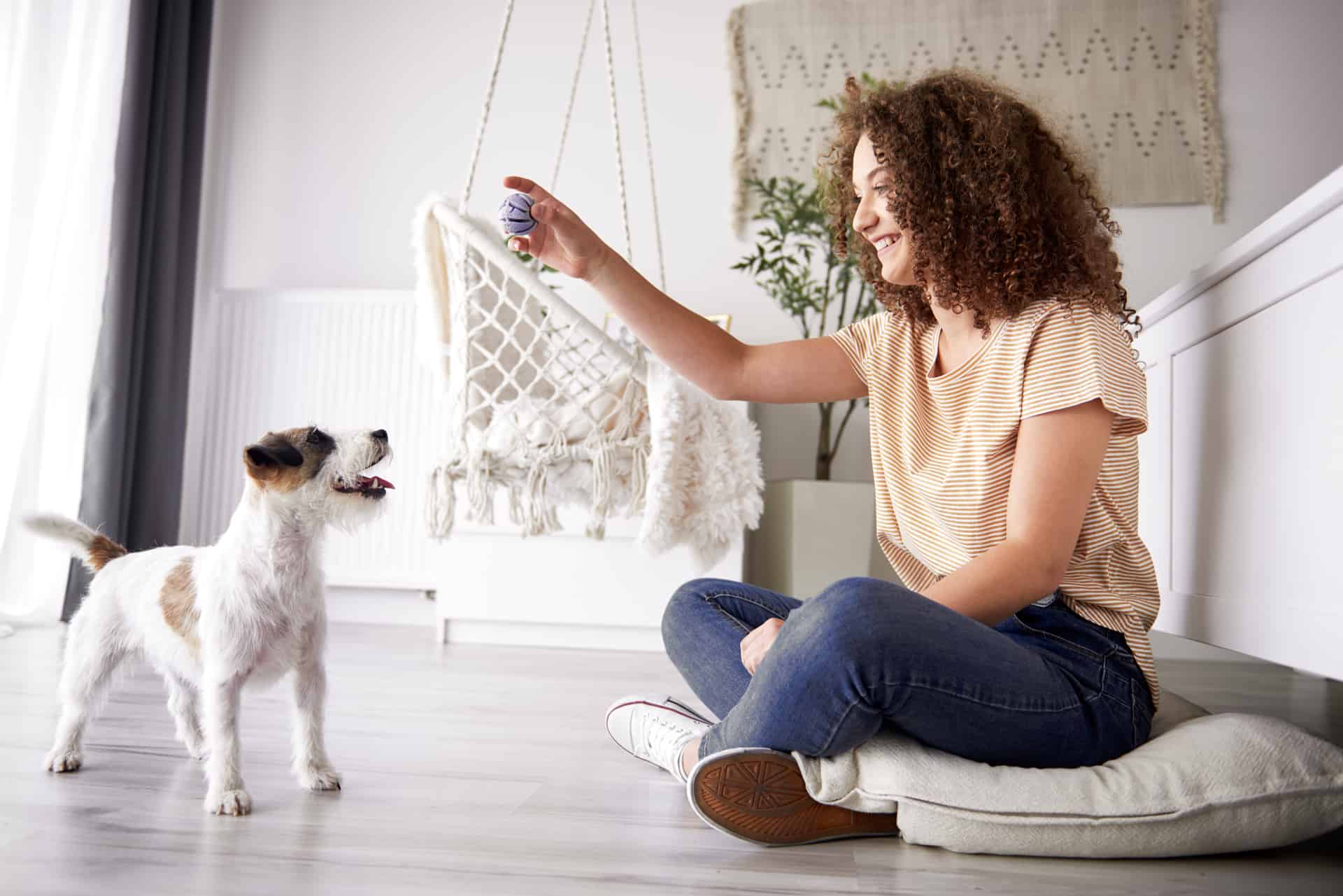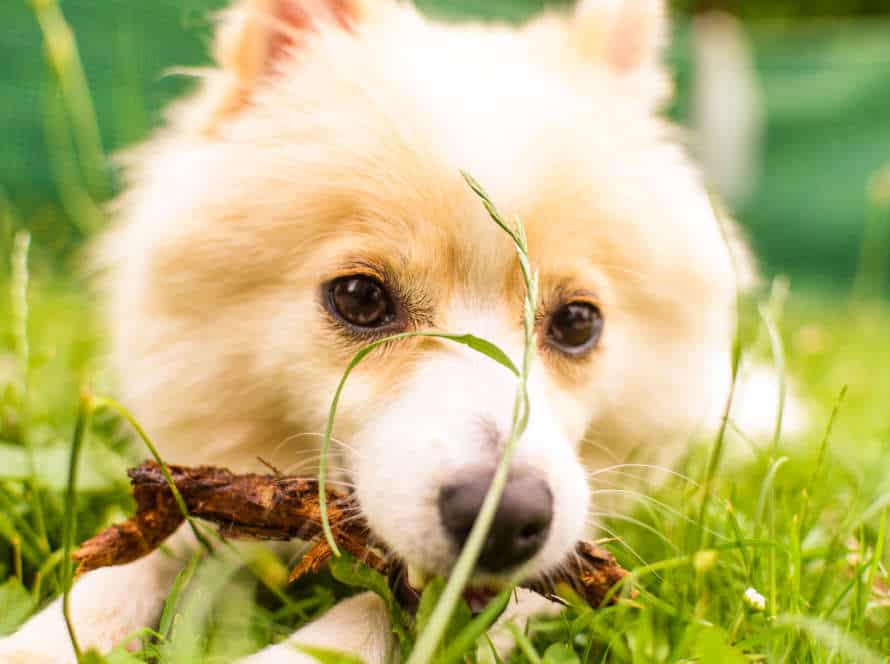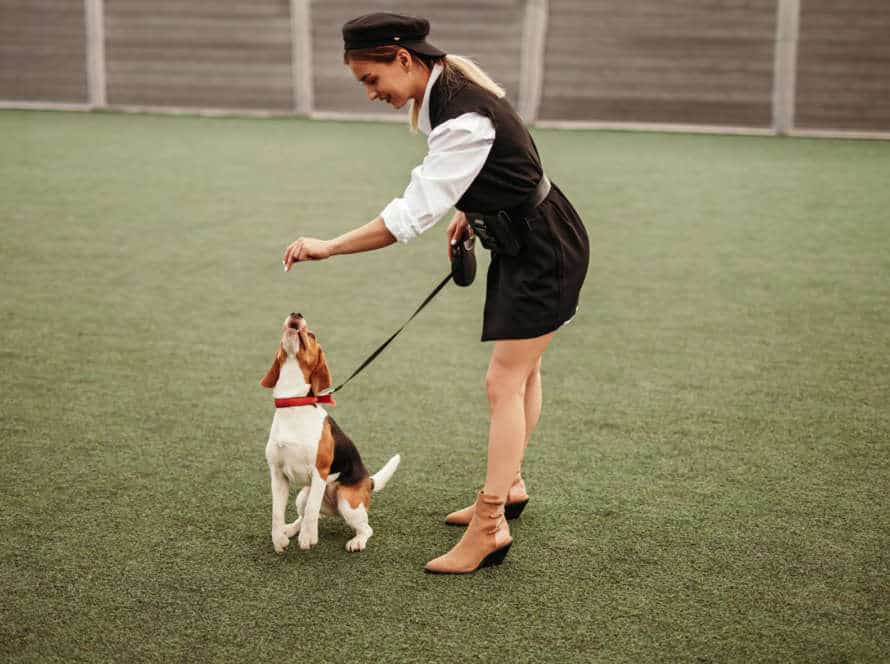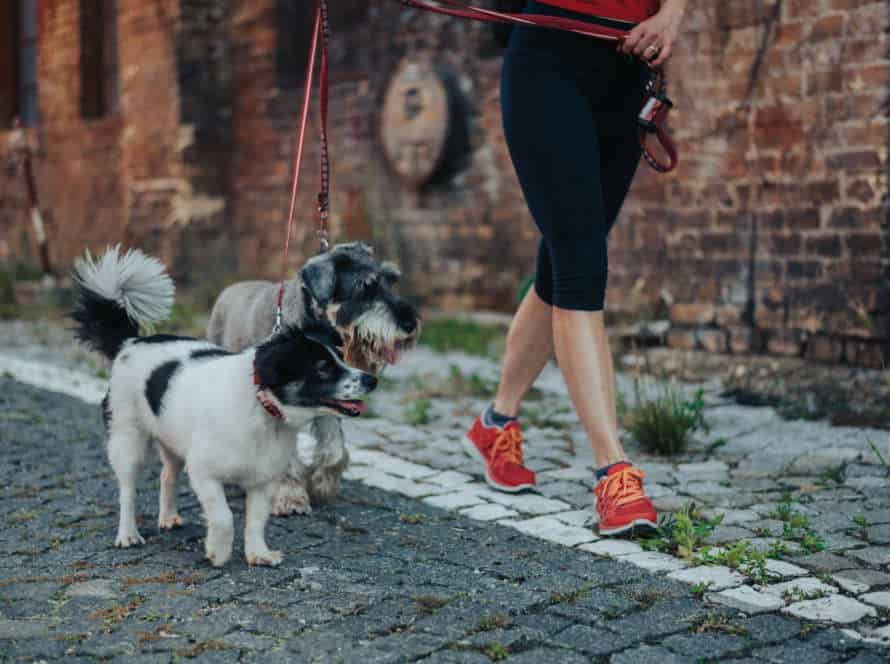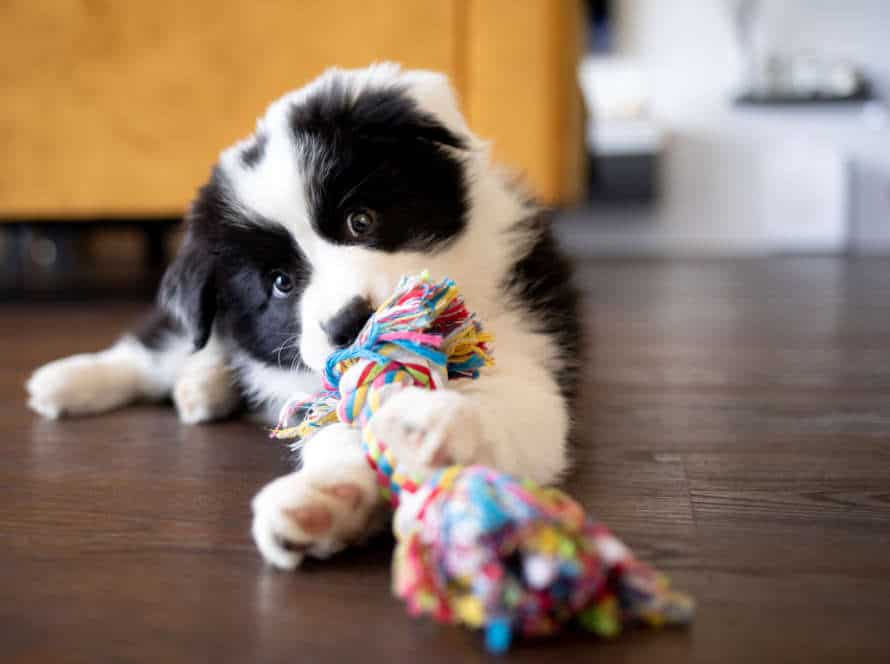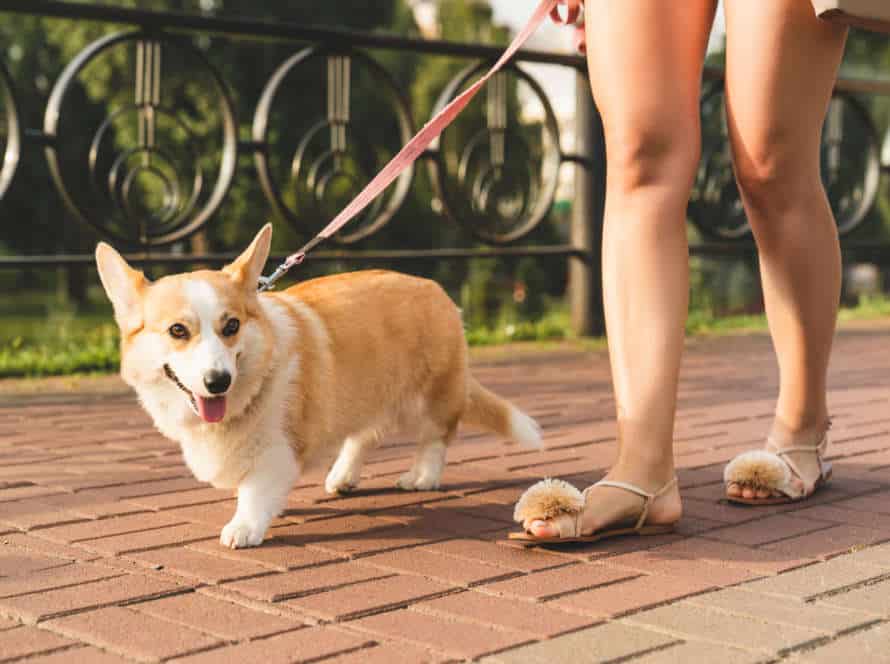Tips for Preventing Accidents During House Training
House training can be challenging! To avoid accidents, it needs patience and consistency from both pet owners and pets. Here are some top tips to help you and your pet achieve success with house training:
Establish a Routine for Potty Breaks
Creating a schedule for potty breaks is essential when house training your pet. Here are a few tips:
- Early morning and before bed, take your pup out.
- Feed them at the same time daily to help regularize pooping.
- After meals, playtime, or naps, take them out if they look like they need to go (e.g. sniffing, circling).
- Use the same phrase, such as “go potty,” to help them understand what you want.
- Be patient and reward them with praise or treats when they go outdoors.
- Accidents will happen, but with consistency and positive reinforcement, your puppy will learn fast!
Use Positive Reinforcement for Good Behavior
Positive reinforcement is a great way to train your pup. Reward them with treats, toys, or praise when they do something you like. Here are some tips:
- Give them high-value treats quickly when they act appropriately.
- Say “Good job!” or “Well done!” to encourage them.
- Playtime with a toy, or a walk after a successful potty break, can help reinforce good behavior.
- Be consistent, frequent, and immediate when using positive reinforcement – don’t use it to punish or scare them.
Limit Access to the Rest of the House
Restricting your pup’s access to the rest of the house is a must-do when potty training. Here are some tips:
- Select a room or zone in your house that’s easy to clean and make it their living space.
- Utilize baby gates or playpens to limit their access.
- Keep a steady feeding and potty timetable.
- Always praise and treat them when they go potty in the designated space.
- House training requires patience. Stay firm and consistent for best results.
Remember: Positive reinforcement is essential for successful house training. So, reward your pup for good behavior and stay resilient!
Techniques for Successful House Training
House training pets is a difficult yet satisfying adventure for owners. Patience and knowledge of animals is key. Accidents do happen, but there are ways to reduce them. Here are some easy methods to make house training easier and more triumphant.
Crate Training
Crate training is a great way to house train your pup and stop accidents at home. Here are some tips to succeed:
- Choose a crate that is the right size for your pooch. It should be big enough for them to stand, lie down and turn around.
- Place the crate in a spot where your pup can still see you and feel safe.
- Reward your dog with treats or praises when they enter the crate.
- Don’t use the crate as punishment or leave them in there for too long.
- Take your pup outside often for potty breaks and straight after coming out of the crate.
- Be consistent and patient – with the right training, your pup will love their crate and think of it as their own safe space.
Paper Training
Paper training is a great method to teach your furry friend where and when to go potty. Here are some helpful tips:
- Choose a spot in your house with easy-to-clean floors, like a laundry room or bathroom.
- Cover the entire area with newspapers or pee pads.
- Take your pet to the spot every few hours, especially after meals, playtime, and naps.
- Praise and reward them when they use the spot.
- Gradually reduce the paper training as your pet becomes more confident and reliable, until they are fully house trained.
Litter Box Training
Litter box training is key for cats. Here are some tips to make it easier:
- Choose the right litter box. Get one that fits your cat, is accessible, and in a peaceful spot away from food and water.
- Fill the box with the right amount of litter. 2-3 inches deep, and use the type your cat likes.
- Introduce the box to your cat. Show it how to use it, and reward it after.
- Stop accidents. Watch your cat during the beginning and take it to the box often.
- Be consistent. Stick to a routine, and make sure the box is always available.
With patience and dedication, litter box training can be a successful and relaxed experience!
Addressing Accidents
As a responsible pet owner, house training your furry friend is essential! But, accidents can easily happen due to the animal’s natural instinct. So, follow these tips to avoid accidents while house training. If they do occur, here’s what to do:
Cleaning Up Accidents Properly
Clean up pet accidents quickly! Blot the area with paper towels or cloth. Use an enzyme-based cleaner. Follow the instructions on the bottle. Don’t use ammonia-based cleaners.
Pro tip: Set up a potty schedule, reward good behavior and supervise your pet while they are being trained. That’s how to keep a clean home!
Consider a Dog Urine Neutralizer Spray
Try a dog urine neutralizer spray for accidents during house training. It breaks down the smelly molecules in urine. Here are more tips:
- Follow a regular feeding & watering plan.
- Take pup outdoors often, after meals & naps.
- Keep pup in crate or confined area when not home.
- Use positive reinforcement to reward good behavior.
- Clean up accidents with an enzymatic cleaner.
- Discourage pup from using the same spot by blocking it off or adding a deterrent.
Pro Tip: Consistency, patience & positive reinforcement are key for successful house training. Accidents are normal. Don’t get discouraged or punish pup for mistakes.
Avoid Using Ammonia-Based Cleaners
House training a pet? Don’t use ammonia-based cleaners! Ammonia is in urine, and using these cleaners can make your pet think it’s ok to pee there. Here’s how to prevent accidents:
- Be consistent with potty breaks. Take your pet out at the same times each day.
- Watch for signs they need to go. Sniffing or circling around.
- Limit access to certain areas. Until your pet is fully house-trained.
- Positive reinforcement. Praise and reward when they pee in the right spot.
- Clean up accidents with an enzymatic cleaner made for pet messes. Not ammonia-based.
- Patience and consistency. Your pet can learn to be house-trained and prevent accidents.
Identifying and Resolving House Training Problems
House training is a must for all pet owners. It builds a connection between you and your furry friend. Unfortunately, it can be tough. If there are mishaps in the process, it is important to pinpoint and solve the problems. Here’s how to do it.
Separation Anxiety
Separation anxiety in dogs is quite common during house training. It can result in potty accidents and other unwanted behavior.
Identify these signs to spot it:
- Acting restlessly or destructively when you’re about to leave.
- Excessive barking or howling when left alone.
- Panting, trembling or pacing.
- Aggression toward family/other dogs.
To resolve it:
- Gradually get the dog used to being alone.
- Leave a comforting item like a favorite toy or blanket.
- Provide treats or distraction toys to keep the dog busy.
- In severe cases, seek professional help from a trainer or vet.
Pro tip: Patience and consistency are essential when dealing with separation anxiety. With practice, most pups can learn to stay calm and well-behaved when left alone.
Medical Issues
Medical issues can be the root of house training problems in dogs. It is essential to sort out any medical issues before starting house training. This avoids accidents and helps the process succeed.
Here are some common medical issues that can impact house training:
- – UTIs: These cause frequent urination and discomfort while urinating.
- – Digestive disorders: Dogs can have trouble holding back bowel movements.
- – Diabetes: Dogs with diabetes have more thirst and urination.
- – Arthritis: Dogs may struggle to get outside to relieve themselves.
If you suspect a medical issue, consult your vet first. For successful house training, stay consistent, patient, and reward good behavior. Make a routine, supervise your dog, and give rewards for success.
Improper Training Techniques
Improper training can lead to issues with house training dogs. Accidents in the house, and reluctance to go out are common. Here are some tips to stop this.
Identifying problems includes:
- not knowing when the dog needs to go out
- no routine
- punishment-based training
- not enough opportunities to go outside
To resolve these problems:
- Have a consistent routine
- Reward good behavior
- Supervise the dog
- Use positive reinforcement training methods
To prevent accidents:
- Go out regularly, after meals, play, and naps
- Supervise inside
- Use a crate
- Limit access to parts of the house
- Clean accidents
A well-trained dog needs patience, consistency, and positive reinforcement training.
Frequently Asked Questions
Q: What are some common causes of accidents during house training?
A: Accidents can occur due to a variety of reasons such as inadequate supervision, lack of consistency in training, medical conditions, and anxiety.
Q: How often should I take my puppy out during house training?
A: Puppies generally need to go outside after every meal, nap, playtime, and every two to three hours during the day.
Q: What is the best way to clean up accidents?
A: Use an enzymatic cleaner specifically designed for pet urine and feces. This will neutralize the odor and prevent your puppy from being tempted to revisit the spot.
Q: How do I know if my puppy needs to go outside?
A: Watch for signs such as sniffing the ground, circling, whining, or scratching at the door. Puppies may also have a telltale “potty dance.”
Q: Is punishment an effective way of preventing accidents during house training?
A: No. Punishing your puppy can lead to anxiety and can make the problem worse. Instead, focus on positive reinforcement and consistent training.
Q: What steps can I take to prevent accidents while I’m away from home?
A: Limit your puppy’s access to certain areas of the house, use a crate or playpen, and consider hiring a dog walker or pet sitter to take your puppy outside during the day.

